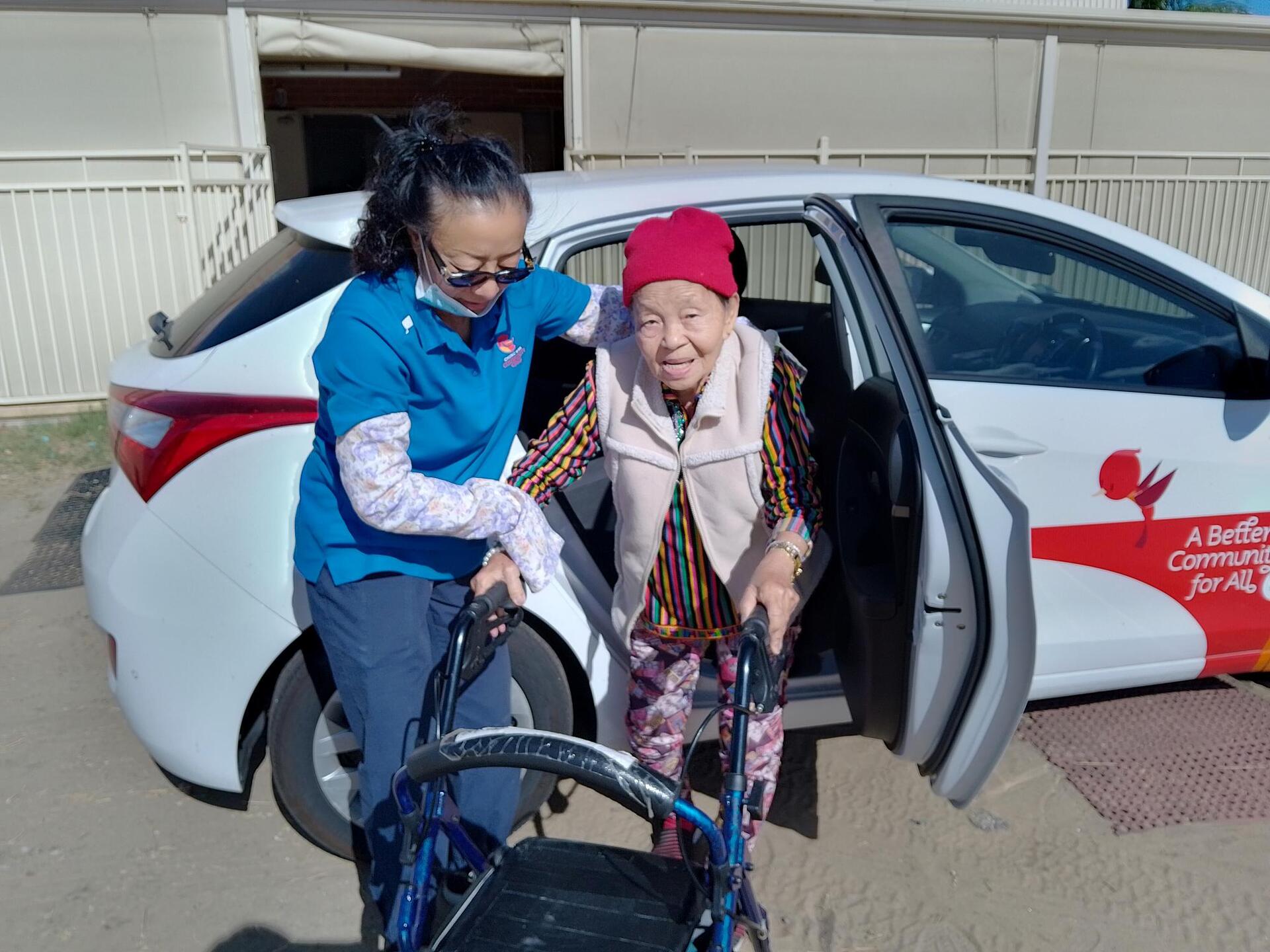The abilityNEWS Daily
The Big Story

Community Transport makes vital links (supplied)
Care, Control and Connection: How ACTA Delivers Real Inclusion
Community transport is proving essential to the safety, mental health, and independence of people with disability—yet its full value remains underappreciated.
It’s easy to dismiss community transport as just another service—something people use to get to appointments, shops, or social events. But for people with disability, it can mean so much more.
The Australian Community Transport Association (ACTA) wants to change the conversation. As the national peak body representing community transport providers, ACTA advocates for a sector that quietly performs an extraordinary social service.
“Community transport providers are not just drivers,” says ACTA CEO Murray Coates. “They’re trusted supporters, early detectors of health risks, and lifelines for isolated people.”
Unlike commercial services, community transport is built on a culture of care. Staff offer door-to-door assistance, check in on clients, and notify family or emergency services if something seems wrong. That kind of attentiveness—often taken for granted—can prevent hospital admissions and protect vulnerable people.
The ABC’s Dr Norman Swan agrees. “The community transport team are walking, talking early detectors of medical problems,” he says. “Their intervention could make all the difference.”
The Royal Commission into Disability shone a harsh light on the dangers people with disability face using standard public transport. Community transport offers a safer, more respectful alternative.
And perhaps most critically—it restores something many lose: a sense of control. Psychologists call it “locus of control”—the idea that people feel healthier and more empowered when they can make their own decisions.
For many Australians with disability, ACTA and its members are helping to make that possible.
The Briefing

Keeping Warm & Well this Winter
by Women With Disabilities Australia
Women with Disabilities Victoria has released a peer guide to help people with disabilities stay healthy and connected this winter. Drawing on lived experience, the guide shares tips for warmth, wellbeing and navigating harsh Victorian weather.
NDIA extends existing partner agreements for two years
by NDIS
Existing agreements with 'partners in the community' have been extended for three years, ensuring continued collaboration through to June 2027. The extensions provide operational stability and reinforce ongoing commitments in shared strategic programmes. There will be no changes for participants and their families and carers. Partners will deliver similar services for individuals, to support people with disability to connect to the NDIS and assist NDIS participants to implement and utilise their plans.
PwDA's submission 'Next Steps in Supported Employment'
by People with Disability Australia
People with Disability Australia has responded to a government consultation on the future direction of supported employment. The submission highlights persistent barriers and calls for reforms grounded in the experiences of people living with disability.
Pain Takes. Disability Pride Gives.
by Women With Disabilities Australia
Brigitte Stone reflects on living with chronic pain and reclaiming identity through disability pride during National Pain Week. Her blog explores how shared pride creates strength, community and the power to challenge stigma and demand recognition.
Not just tokenistic - AFL Match Day Experiences
by Down Syndrome Australia
What's it like to be on the field? Sammy took part in the Fiona McBurney Match Day Experience, where people with disability assist AFL umpires on game day. With a record 22 participants across the season, the initiative continues to make a lasting impact on individuals and families.

The Wrap
‘Culture of dependency’ lifts spending to highest level since WWII
by AFR
The federal and state government spending splurge has hit the highest level since the end of World War II, due to a massive ramp-up in outlays on disability support, aged care and childcare. The National Disability Insurance Scheme is the chief culprit, accounting for $52 billion in costs and making Australia among the biggest government spenders on disability in the world.
College linked to banned disability provider in voluntary administration
by Herald Sun
Staff at Cocoon International College in Brisbane, which advertised itself as providing a pathway for overseas workers to get jobs in community services, childcare and aged care, was informed about the decision on Sunday, in an email sent by Muhammad Latif, director of a number of businesses under the Cocoon banner.
Coalition ready for new talks with Labor on cost-cutting measures
by Catholic News
The Coalition are ready to support changes that set stricter rules for what supports were available, how plans were managed, and laid the groundwork for a new scheme to be run by the states that could support some people with milder disability, who were joining the NDIS in the absence of more appropriate supports.
The Diary

